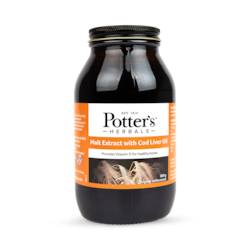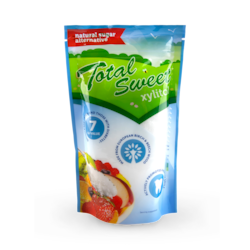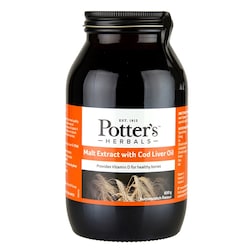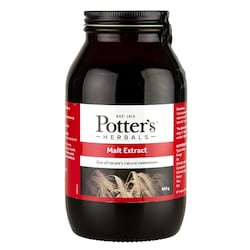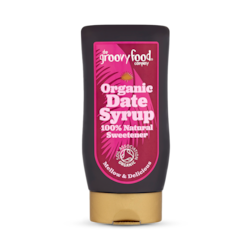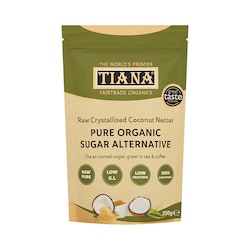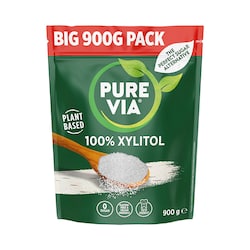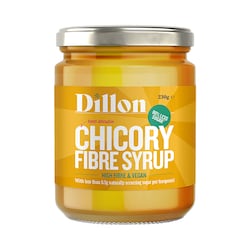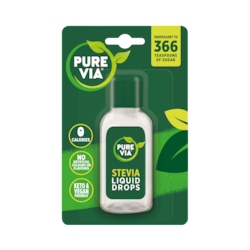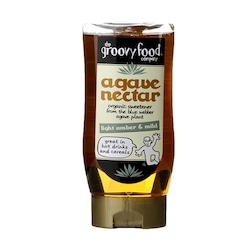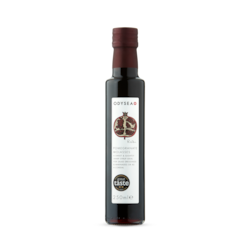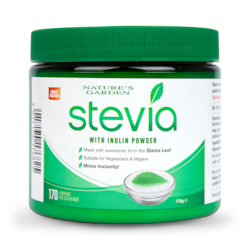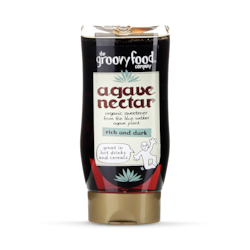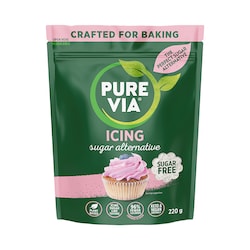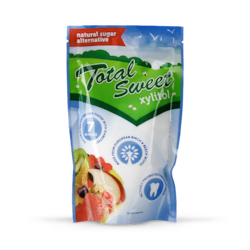20% off £30
Code:SPEND
8 natural sugar substitutes
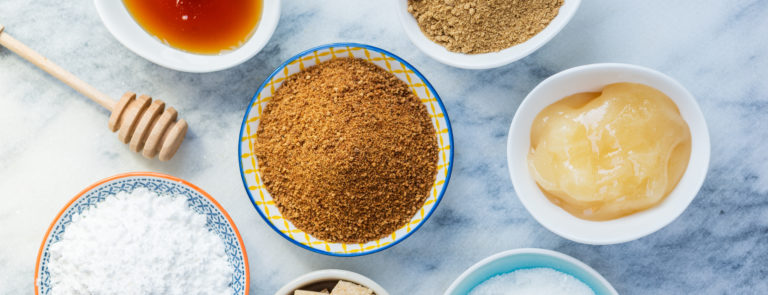
Ready for some sugar rehab? Looking for a healthy sugar substitute? Here’ a handy overview of some common natural sugar substitutes
Are you in need of some serious sugar rehab? Looking for a healthy sugar substitute maybe? Here, we provide a handy overview of some common natural sugar substitutes. But beware, not all of them are as good for you as you might assume.
1. Agave nectar
Produced by the agave plant, it’s flavourful and works as a sweetener in a wide range of culinary situations. Pros A low glycaemic index score suggests it might not spike blood sugar as much as regular sugar.1 Cons Agave has 85% fructose content (that’s more than regular sugar) and is high in calories.22. Coconut sugar (or palm sugar)
Extracted from the sap of the coconut palm, this natural sweetener is unrefined and works in place of a number of standard sugars. Pros Contains a small amount of fibre, as well as some nutrients (iron, zinc, calcium, and potassium).and antioxidants3 Cons Coconut sugar contains comparable calories per serving as regular refined sugar.3. Honey
The golden liquid is sweeter than sugar and rich in antioxidants. It works well in sauces, marinades, smoothies, salad dressings and baking. Pros Thanks to phenolic acids and flavonoids, honey has some impressive antioxidant value.4 Cons Due to its fructose content, consume in moderation.4. Date sugar/paste
Sweeteners derived from dates work well in smoothies, baked goods, sauces, marinades and salad dressings.5 Pros With a decent dose of fibre, minerals, and vitamins, date paste and date sugar can add more nutritional value to your diet than standard sugar.6,7 Cons The downfall of dates is they can be difficult to use. For example, date sugar doesn’t dissolve well.85. Maple syrup
This sugary liquid comes from the sap of maple trees and makes a great topping for pancakes and waffles. Pros Maple syrup is high in antioxidants and rich in minerals, including calcium, potassium, iron, zinc, and manganese.9 Cons Although it’s slightly better for you than regular sugar, it will still raise your blood sugar levels. Consume in moderation.6. Molasses
Molasses is a thick brown liquid. It's made from boiling down sugar cane or sugar beet juice. Pros It contains some vitamins and minerals, several antioxidants and is a source of iron, potassium, and calcium.10 Cons Consuming large amounts of molasses can cause loose stools or diarrhoea.117. Stevia
Stevia sugar substitute is a powdery plant-derived sweetener. It can be up to 350 times sweeter than sugar (so you only need to use a little.) Pros Stevia contains zero calories and studies suggest it could have a positive influence on our health. Cons There’s a lot still to understand about the health benefits associated with stevia.8. Monk fruit extracts
Extracted from the monk fruit (a small round fruit from Southeast Asia), most of its sweetness comes from antioxidants called mogrosides.12 Pros It gets a thumbs up for its antioxidant qualities.13 It also contains zero calories and is 100-250 times sweeter than regular sugar (so you need less of it.)14 Cons It's commonly mixed with other sweeteners. Always read the label.Are you looking for a healthy sugar substitute?
| The sugar substitute | |
| Caster sugar substitute / Golden caster sugar substitute | With a few simple recipe modifications maple syrup, stevia and honey can be used as a natural sugar substitute for baking.15 |
| Brown sugar substitute | Coconut sugar looks like brown sugar and tastes very similar too. You can replace brown sugar with coconut sugar in a 1:1 ratio.16 |
| Muscovado sugar substitute | Molasses can be used instead of muscovado, but beware, it has a strong distinctive taste.17 |
| Demerara sugar substitute | Coconut sugar or maple syrup can work as a demerara sugar substitute.18 |
| Icing sugar substitute | Stevia could be used as a powdered sugar substitute.19 |
| Granulated sugar substitute | Coconut sugar can be used as a 1:1 replacement. If your recipe doesn’t require dissolving or melting sugar, date sugar could also be used. With some modifications, honey, maple syrup and molasses could also be used as a granulated sugar substitute.20 |


